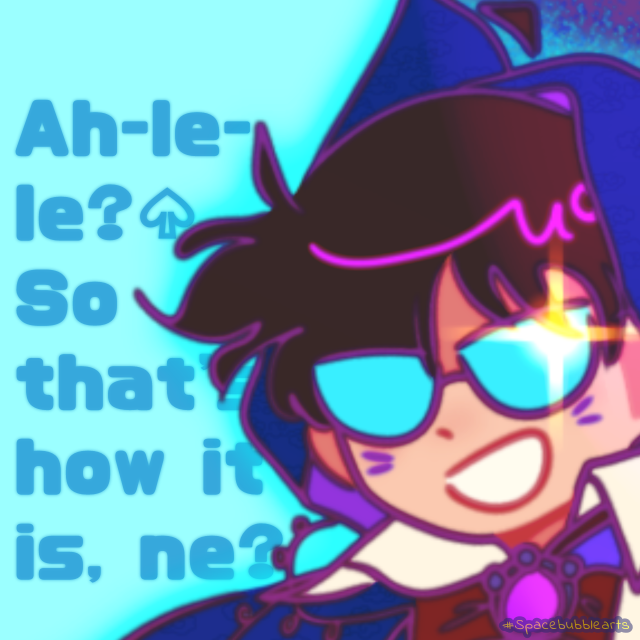#exchange
ENJOY IT





This is Full Video
Please Reblog It
And so we reach the end of our road trip of the U.S. We drove 3,500 miles, through 5 states for 6 days.
And every minute was great.
Post link
Hat wer Lust paar Bilder von jungen Girls zu tauschen und bisschen aufgeilen ? Am Besten eine W
Post link
#KaishinGenshinAU♪




Joined a Secret Santa event this year and got prompts for our ship! Naturally, I had to pick the hardest out of them cause I like to make myself miserable lmao- (TvT) Anywho! I originally signed up as an artist, but since the person who wanted this was good with ANY type of media, I took my creative liberties and began writing down potential plot too! Hope you enjoy them because I’m not done yet and this is just a preview before your ACTUAL Christmas gift, dear @ilsepfefferminz!Have a very happy holidays in the meantime, okay? ;-)

PlotSummary:
The Anemo God saw how dangerous it is for anyone with malicious intent to hold magical jewels as they please (specially like that of Dvalin’s tears), so he appointed someone to make sure those gems never reach the hands of evil. They can go about it however they like as long as they don’t cause harm and the disciple they appointed chose to be a phantom thief. Unbound by mortal rules and laws. It started with his mother, then his father who was killed by a gang of bandits aiming for a specific gem of true eternity (that the Kurobas have never even heard of before then), and thus, it was a title passed on to their prankster of a son, KurobaKaito. Who studied from Sumeru (and absolutely obliterated the top scores at the Academy) and went back to Mondstat to become a carefree travelling performer after getting sick of studying for tests he could answer in his sleep, only to find out the truth of his lineage. Gaining the blessing of a certain bard and taking up the mantle, he becomes Teyvat’s notorious (yet beloved) thief reincarnated, the guardian of any and all celestial gems, and the thorn to every sort of authority that challenges him, Kaitou KID.
He got the Anemo God’s Blessing with a game of Poker. He won (and cheated), but Venti was a good sport about it. In fact, he found his guts to go against (and cheat) an Archon to be hilarious and the bard DID agree to a FREE game so- ce la vie. The two of them got along like a house in the eye of a sentient hurricane. Not only because of their cheerful performer disposition, but also because Kaito can truly understand how the Anemo God feels about taking the place of someone once so adored and revered. It’s a heavy burden. One that Kaito can also share.
Shinichi Kudo is a detective from Inazuma. His father rushed him to Fontaine in the guise of furthering his detective career when they heard early tales of a civil war coming about. Though danger knows how to follow brilliant minds as Shinichi found himself cornered and corrupted by a type of gem that grants eternity… at a price. His age was reduced to half and slowed to a snail’s pace. Granting him the life of a nekomata. A type of youkai who lives a life full of death and holds no peace despite his near immortality. To end the curse, at night he ventures out to seek the same type of gem that brought on his misfortune. For only when the moon rises does the curse give way for his true self to reappear and only then would he not have to hide beneath the glasses of the young, yet eccentric Conan Edogawa.
Some time ago, a young(?) catalyst with a specialty in alchemy revealed to Conan the type of (ultra) rare gem used in the potion that the bandits used to curse him. If it could do that, then it’ll most likely be needed for his cure as well, she says. Thus begins his journey of traversing domains at night and stumbling upon death after death at day. It’s disturbing, really. To be a detective that detest murder and yet to live in Teyvat, a world where slaughter is a means of survival. Necessary and often morbidly understood. A world where nekomatas can barely take a break from the amount of killing that happens everyday. The night have become his only breather. The only time he can curve the call of passing souls without feeling the suffocating obligation to solve their murder as Shinichi Kudo is but a mere human who can’t instinctively feel when someone dies from a fair city away. Far out of his reach. Still, it shakes his morality. Test his faith. Remembering how he got his vision as he was being poisoned. Believing he’s at the brink of death. Thinking how desperately he wanted for a little more time to exact his justice on those who wronged him… Just a little more time… And now? With the same power that drove his country to war at his fingertips? He’s sick and tired of eternity.
To think… That he’d find a man of morals similar to his own- one that despises murder with a burning passion -in the mind of a criminal most annoying of all people! He can still recall their first meeting at Fontaine. Detective Shinichi would just like to clear out some domains and check for a certain type of gem, if only that stupid thief won’t stand in his way. KID’s just here to do his job (and also find a certain gem to maybe get some rightful revenge on the side), thank you very much. But he must admit, the mysterious and evasive Detective of the East (who only appears at night- what’s up with that-) can be very entertaining to match wits against.
On the other hand, when morning comes, Conan wonders what he did to deserve this. As a nekomata, he has his needs and being feline meant a new craving for fish and not just the celestial ambrosia that is coffee. Who knew that he’d instead be catching a notorious prankster once drowning in the water for unspecified reasons (by that, we absolutely mean that he’s looking for a gem, tho tantei-kun doesn’t need to know that) and screaming bloody murder to all finny things when he went out to go fishing that fateful day? Then later, said genius performer insisted on being the first member of his party (whether he likes it or not) as a concerned citizen who took upon a self-appointed duty of looking out for impressionable (albeit admittedly brilliant) children left on their own. To be fair, Conan thinks the guy is also, technically, a stranger. But time and again, he proves to be trustworthy enough. Still, why does Kaito-nii seem very curious about his distant “cousin?” And why does he remind Conan of that one silly fairytale from Sumeru of an incorrigible street rat that found a genie and became a prince in white lies? Curioser and curioser.
(Random fun fact. If Kaito can get along with Venti, Conan would probably get along with Diona if he ever paid a visit to the homeland of that stupid thief. It’s because both Diona and him are young nekos who share a deep hatred for alcohol for one reason or another. He also gets along with Qiqi. What with their connections to death & aversion of Hu Tao.)
(Shinichi’s dad works for the Yae Publishing House as a best selling mystery novelist. Yuusaku and Yae know how to terrorize either the editors or their readers and make a great (terrifying) team for it. Yukiko was an actress for the all-female Takarazuka Theater Troupe and she excels at both gender roles )

Now here’s the tough question, if you can only have one, who would you pull for? XD
-Bubbly
Marx’s theory of value (re divergence of value from price) explains the foundation of surplus profit, which is significantly related to the unprecedented wealth of contemporary moguls, and its association with technological advancements/ increased productivity— eg in industrial production, specifically improvements in machinery, more productive factories. With related technological improvements, more productive units become the measure of price (exchange value). But these technological improvements are not instantaneous — eg because all branches of production are not the same. Thus there are varying degrees of productivity. And the least productive initially influences market price/ exchange value. Hence surplus profits for higher productivity, while market price fluctuates above market value. However, after a certain point, surplus profits “equalize” with average profits via competition, market price gravitates closer to market value, and the rate of profit becomes the same for capitals across the board. Again.. this presupposes that re- production of means of subsistence/ labor/ society is determined by production of surplus value (profits / rent) and the “law of market value”.
Finally, Marx’s examination of surplus profit notes how the law of market value creates a “false social value”, based on exchange value instead of value, that exploits society in terms of consumption/ consumers. For me, this offers an important theoretical foundation for organizing exploited workers at the point of consumption in addition to organizing at the point of production. And not only against capitalist producers but against the landlords as well; particularly with present, even more exorbitant rents and related surplus profits.
More directly bearing on Marx on “Value” below ..
Bringing clarity to my earlier posts re differences between value vs exchange value and surplus value, Marx’s analysis of surplus profits in industry and agriculture by those who first introduce advances in technology explains how the market price/ exchange value of early capitalist production (unconsciously) deviates from the value of these commodities based on labor time — with surplus profits initially forming the basis of the capitalist class system and existence of capitalists/ landlords. As Marx notes, with the abolition of capitalism — and, indeed, abolition of any system based on exchange of commodities — products of labor would be produced and distributed (consciously/ planned) according to their use value. I feel this further confirms the end of the historical presence of value through communism and the abolition of exchange — as suggested by Marx.
Offering up a bit more fodder for discussion and possibly, for some, perhaps elucidation — as I’m now on page 235 in my copy of Rosdolsky’s discussion of “Capital”..!
The fundamental point in Marx’s discussion of surplus value is that it is a function of the amount of labor power expended by the worker beyond that which is necessary for production of means of subsistence. Thus expenditure of labor power for 1 working day can create commodities with a higher exchange value than the labor time necessary to sustain a worker for that one day. Albeit, it need not — and in capitalist society, must not — require working the entire work day to produce means of subsistence. It’s necessary that some part of the day goes to producing surplus value .. ie more than is necessary for reproduction of labor (capital, profit etc). “As long as the worker merely produces an equivalent for the value of his own labor power, “he only replaces the money advanced by the capitalist and spent by the worker on means of subsistence.” (p. 217). But capitalism requires “he work over and above that which he would have to work in order to reproduce his wages “ (p. 219).
For example.. if the work day is 8 hours long, and the labor time required to produce means of subsistence is 4 hours, and the money form/ universal equivalent of value of 1 hour of labor time is $15, then necessary labor time = surplus labor time (the ratio of necessary labor to surplus labor is 1:1), the rate of the surplus value of capital is 100%, and 1 worker will produce $60 worth of surplus value throughout 1 working day. Further, if the capitalist employs 100 workers, then $6,000 of surplus value is produced every working day.
Of course, it is possible to increase surplus value — without increasing prices or wages… ie by lengthening the workday. Obviously, there are physical/ natural limits to how far the work day can be stretched. And beyond this, social and historical limits, eg, such as establishment of a “normal” work day. Moreover, if the absolute length of the working day is a constant, surplus value can still be increased by reducing the part of the working day that is necessary for production of means of subsistence; ie, surplus labor time can be increased by diminishing necessary labor time (p. 224).
The most fundamental feature of capitalism is the way in which it increases surplus labor by reducing necessary labor by promoting development of means of production (p. 225)… bringing lots of workers together in a factory to perform their labor in cooperation, eventually moving from simple cooperation into manufacture and then modern machinery. But Rosdolsky elaborates further on this in chapter 17 (p. 235).
This brings us back to the secret of Marx’s (small) book “Capital”. And I am all agreed with Rosdolsky, who again is so well-stated:
“Therefore the only value which is actually produced in the production process “is added by the new amount of labor. This value, however, consists of necessary labor, which reproduces wages… and of surplus labor, hence surplus value above and beyond necessary labor”. Thus the secret of capitalist “money-making” is resolved by the fact that the wage laborer, who owns none of the means of production, is compelled to work beyond the time necessary for the maintenance of his life — that he can live at all, if he simultaneously sacrifices a part of his life to capital… “Where capital rules (just as where there is slavery and serfdom or bondage of any sort), the worker’s absolute labor time is posited for him as a condition of being allowed to work necessary labor time, i.e. of being allowed to realize the labor time necessary for the maintenance of his labor capacity in use values for himself”. (pp. 220-221).
My most recent thoughts on “value” and “capital” in Marx; admittedly, maybe needs some further clarification… and by no means “closes the case”.. But I think I can support my understanding:
Quickly, Marx’s definition is that capital is self expanding value. Consistent with this position, capital cannot “exist” without value, which is labor time objectified in the form of a commodity. (Use value and exchange value are necessary in order for a commodity to have/ be value.) But, of course, that makes exchange value, the representative of the value of commodities, the “point of departure” for capital. Thus the only possible route seems to be to move from commodities, to value — here introduce abstract labor, exchange value, socially necessary labor time, etc — to money, to capital, concluding with what happens to Marx’s law of value in capitalism — ie whether Marx’s original analysis of commodity exchange, value form, freedom and equality etc is relevant to capitalism..or not. What particularly grabs my attention is the dialectical development of exploitation and freedom in Marx’s approach to capital… ie one should try to keep their focus on how capitalists “appropriate a portion of the workers’ labor time” — which not only has/ is value but creates “surplus value” — “without exchange by means of the form of exchange”… as a “non exchange”, although “the worker receives an equivalent to his labor power from the capitalist, in accordance with the laws of commodity exchange”.

I’m taking a hiatus in reading today due to exhaustion and other issues. However, this gets to what Marx emphasizes re. explaining capital as value which self increases its money form. And means that, the center of the reproduction of labor/ means of subsistence — and expenditure of labor time— is determined by exchange value and making advances in terms of money. At the same time, allocation of labor power is regulated by the law of value through purchase and sale on the market. Means of production are used by those who own them for purposes related to profit, rent, and interest — ie not the satisfaction of need and want — as would be the case in communist society. Going on under a communist society (as, eg, pre capitalism), use value becomes the standard in terms of production, not (exchange) value or surplus value. Consequently, with these revolutionary advances in social reproduction, accumulation of capital is finished off. There are numerous use values produced (globally).. with satisfying human want and need and keeping labor time to a minimum determinately influencing distribution of labor/ means of subsistence.
In Marx’s analysis, the “exchange between capital and labor power” (ch. 12 in Rosdolsky’s “Making Capital”, pp. 194-202) is the most basic relation of capitalism. And the issue at hand is how profits consist of unpaid labor. Yet, the law of value still regulates the exchange between capitalist and worker (i.e..exchange value of labor power is traded for its exchange value in wages.)
Further developing this account..A worker exchanges labor power for wages, which can in turn be exchanged for stuff like means of subsistence; “C-M-C”. The worker exchanges his labor power for its equal value in money. On the other hand, the capitalist exchanges wages for labor power… the use value of which is production of commodities; M-C-M(+) — where M+ depicts the initial outlay of “M” plus additional, “surplus” value. At M-C, the capitalist exchanges variable capital for labor power. And production takes place in between M-C and C-M. During production, labor power is consumed by the capitalist to produce new commodities. The new commodities are then exchanged for money; and not only for money but for more money. For Marx, it is the use value of labor power, its “productive consumption”, that is the source of creating this new, additional value (hence explains the nature and origin of surplus value.)
Thus, labor power, sold by the working class to the capitalist class, has the unique characteristic of being a commodity whose use value creates an exchange value higher than its own exchange value. But, since commodities exchange on basis of their values, and labor power is exchanged as a commodity, it can be assumed the working class is compensated for the exchange value of their labor power. In the commodity market, labor power is a commodity just like all the rest, so it is reasonable to assume it is paid for by an equal value such as the others.. e.g. in wage form; which workers can use to exchange for commodities/ necessities/ means of subsistence. This is an exchange of value for value. But “value does not create value”.
Marx’s critique is the root of exploitation lies in the(surplus) value labor power creates, rather than being cheated out of its own value by the capitalist as a purchaser of labor (power). The worker transforms means of production into a product, and the capitalist pays him out in wages. But surplus value emerges from a certain form of production and not from interactions related to commodity exchange and circulation. It is labor power expended within a definite social form that produces surplus value. It is critical for Marx’s argument that surplus value is created during the process of production and is not cheated from workers in their exchange against capital,.. which is why he includes notes that “formal” equality of simple commodity exchange between buyers and sellers — where value equivalents are exchanged amongst equals — masks “concrete” relations associate with capitalist production.
What Marx is getting at is the difference between the exchange value of labor power exchanged as a commodity — the labor time required for its production — i.e. the socially necessary labor time required to produce the worker’s food, clothes, housing; to train and educate labor power; to replenish its supply — and the exchange value labor power generates during the production process. Value for value is what is paid in the exchange of commodities. Consequently it is necessary that surplus value occurs in production (not circulation, exchange, or buying labor power below its value.)
“Like every exchange of commodities, the exchange between labor power and capital is mediated by money. “Because the worker receives the equivalent in the form of money, the form of general wealth, he is in this exchange an equal vis-a-vis the capitalist, like every other party in exchange”. Of course, this equality is “only a semblance and a deceptive semblance”, and that it is rendered null and void by the fact that capital appropriates a part of the worker’s labor time “without exchange by means of the form of exchange”, hence that the workers stands “in another economically determinate relation” to the capitalist “than that of exchange” … “This semblance exists, nevertheless, as an illusion on his part and to a certain degree on the other side, and this essentially modifies his relation by comparison to that of workers in other social modes of production” (p. 197).
“Where I am now” in terms of trying to explain Rosdolsky’s interpretation of Marx on “the transition [from value and money] to capital” (chapter 11 in “Making Capital”) — if that is at all possible and the attempt further suggesting that I’m wrong or at least too simplistic — is that, in order to develop capital from money, “selling in order to buy” (C-M-C), must pass over to “buying in order to sell” (M-C-M). “Only under these conditions i.e. if the circuit C-M-C turns into the circuit M-C-M, can money become self-preserving and self-augmenting value, become capital” (p. 188).
In the simple commodity circuit “C-M-C”, a commodity owner begins by exchanging a commodity for its equal in money. Next, our commodity owner exchanges this money for an equivalent value in new commodities. Thinking qualitatively, i.e. in terms of use value, the owner exchanges a commodity which is not a use value for him for another commodity which is useful for him, via the universal equivalent — money. Considered quantitatively, there is no increase or expansion of value and the exchanges values of each commodity are equal.. which is also equivalent to the value of the money involved. We notice commodities are exchanged for their equivalent in money form. And money is exchanged for its equivalent commodity form of value. This means that simple commodity exchange is a process of exchanging equivalent exchange values with a view on consumption, not increasing exchange value.
“One commodity is ultimately exchanged for another commodity… and the circulation itself only served, on the one hand to allow use values to change hands according to need, and on the other to allow them to change hands to the extent to which labor time is contained in them… and to the extent to which they are factors of equal weight in general social labor time”. (p. 185). But “Value does not emerge from value; rather, value is thrown into circulation in the form of a commodity… The same magnitude of value which previously existed in the form of the commodity, now exists in the form of money” (pp. 186-187).
Already, we see how simple commodity exchange — selling in order to buy — is determined by the use value of a commodity. At this stage of economic development, exchange value has not yet thrown use value into the dustbin. However, dominance of exchange value.. “where exchange value as such becomes further developed” (p. 186).. “the form wherein exchange value is the point of departure” (p. 184)… is the basis of the capitalist mode of production. “Capital must be understood as self-augmenting value… And for this purpose it is necessary to proceed… from ‘exchange value’” (p. 185). But capital is not simply “self-reproducing exchange value” (p. 184). That is, cannot be accumulated unless commodities are exchanged for an increase in money.
In the capital exchange circuit, “M-C-M”, value only becomes capital and the owner of money a capitalist because the commodities are produced with a view towards exchanging them for a greater exchange value than the original exchange value of “M”. In this circuit, in its complete form, the function of labor power is not only useful but becomes essential. And thus we arrive at the core of capitalist society — commodity exchange of labor power for wages.
Getting ready for Easter dinner.. and hopefully more intense reading tonight. If you haven’t already, be sure to put Rosdolsky’s “Making Capital” on your list. Still struggling through “the actuality of the law of value” toward the middle of Vol. I. Some amazing gems from Marx there… as always:
“What Marx says here on the category of labor also applies of course to the category of value as determined by labor. This category also had an “antediluvian existence”, it too existed historically long before capitalist production, and by no means “penetrated all economic relations”. To this extent, “it is quite appropriate to regard the values of commodities as not only theoretically, but also historically prior to the prices of production”. However, the category of value only appears in its developed form in capitalist society, since only in this society does commodity production become the general form of production”.
- Roman Rosdolsky, “The Making of Marx’s Capital”, Vol. I, trans. Pete Burgess, London: Pluto Press, 1980, pp. 172-173.
‼ SIGNUPS ARE NOW OPEN for Year 5 of Seasons of Anime Exchange!
https://bit.ly/sofa2022signupThis is a multi-fandom exchange that is open to writers and artists. Please check https://seasons-of-anime-exchange.tumblr.com for schedule & guidelines.
Signups are open until 22nd May!
Post link
Hi everyone, fandom nominations & mod applications are NOW OPEN until April 30th!
Click the link below:
http://bit.ly/sofa2022-nominations-modapps
Read more About Us, 2022 Schedule, and other relevant guidelines @ http://seasons-of-anime-exchange.tumblr.com!
Got a question❓ http://seasons-of-anime-exchange.tumblr.com/ask
Post link









